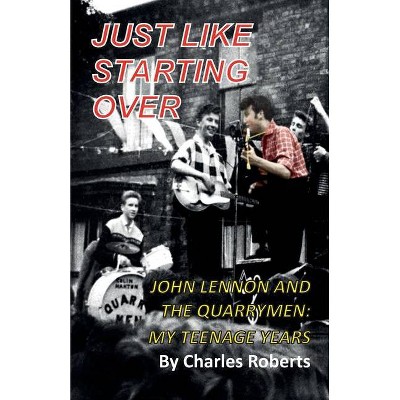Starting Over - by Albert Fishlow (Paperback)

Similar Products
Products of same category from the store
AllProduct info
<p/><br></br><p><b> About the Book </b></p></br></br><p>Brazil has undergone transformative change since the 1980s, from an authoritarian regime to a democratic society advancing on all fronts--political, social, economic, and diplomatic. In Starting Over, Albert Fishlow traces the evolution of this member of the BRICS group over the last twenty-five years and looks toward the future as the newly elected president, Dilma Rousseff, follows her very popular predecessor, Luiz Inácio Lula da Silva, or Lula.</p> <p>The transformation of the country began with the founding of the Nova República and the Constitution of 1988, which established a strong executive and encased key social principles such as a citizen's right to education and health care. Then the Real Plan of 1994--initiated under President Fernando Henrique Cardoso--set the stage for economic growth and a stable economy. There were setbacks, especially in the mid-1990s with the Mexican devaluation, Asian financial crisis, Russian default, and Argentine collapse, and, later, the U.S. recession. But changed economic policies in the late 1990s put Brazil on the right path to future economic growth, which resumed during the Lula years.</p> <p>With popular participation in the electoral process at an all-time high, politics has been profoundly altered in Brazil. Economic rules are now more permanent, and economic advance more regular. A healthier and longer life is now available to a broader swath of the population, and there is opportunity for social advancement. In addition, its foreign policy has greater consequence internally as well as externally.</p> <p>Dilma's two immediate predecessors--Cardoso and Lula--are tough acts to follow. Their influence has been profound, and Brazil is now a very different nation than it was in the 1980s. But she is working from their template to move the country forward. This insightful book clearly explains how and why the country has progressed to its current standing and what the future portends. Starting Over is essential reading<p/><br></br><p><b> Book Synopsis </b></p></br></br><p>Brazil has undergone transformative change since the 1980s, from an authoritarian regime to a democratic society advancing on all fronts--political, social, economic, and diplomatic. In Starting Over, Albert Fishlow traces the evolution of this member of the BRICS group over the last twenty-five years and looks toward the future as the newly elected president, Dilma Rousseff, follows her very popular predecessor, Luiz Inácio Lula da Silva, or Lula.</p> <p>The transformation of the country began with the founding of the Nova República and the Constitution of 1988, which established a strong executive and encased key social principles such as a citizen's right to education and health care. Then the Real Plan of 1994--initiated under President Fernando Henrique Cardoso--set the stage for economic growth and a stable economy. There were setbacks, especially in the mid-1990s with the Mexican devaluation, Asian financial crisis, Russian default, and Argentine collapse, and, later, the U.S. recession. But changed economic policies in the late 1990s put Brazil on the right path to future economic growth, which resumed during the Lula years.</p> <p>With popular participation in the electoral process at an all-time high, politics has been profoundly altered in Brazil. Economic rules are now more permanent, and economic advance more regular. A healthier and longer life is now available to a broader swath of the population, and there is opportunity for social advancement. In addition, its foreign policy has greater consequence internally as well as externally.</p> <p>Dilma's two immediate predecessors--Cardoso and Lula--are tough acts to follow. Their influence has been profound, and Brazil is now a very different nation than it was in the 1980s. But she is working from their template to move the country forward. This insightful book clearly explains how and why the country has progressed to its current standing and what the future portends. Starting Over is essential reading for anyone trying to grasp what is happening in this dynamic nation.</p><p/><br></br><p><b> About the Author </b></p></br></br><p> <b>Albert Fishlow</b> is professor emeritus at both the University of California-Berkeley and Columbia University. He also served as Paul Volcker Chair in International Economics at the Council on Foreign Relations. He was deputy assistant secretary of state for Inter-American affairs (1975-76), and he received the National Order of the Southern Cross from the government of Brazil in 1999. He has written extensively since the 1960s on the nation's continuing evolution.</p>
Price History
Price Archive shows prices from various stores, lets you see history and find the cheapest. There is no actual sale on the website. For all support, inquiry and suggestion messagescommunication@pricearchive.us



![Starting Over [LP] - VINYL](https://pisces.bbystatic.com/image2/BestBuy_US/images/products/6432/6432964_sa.jpg)
















